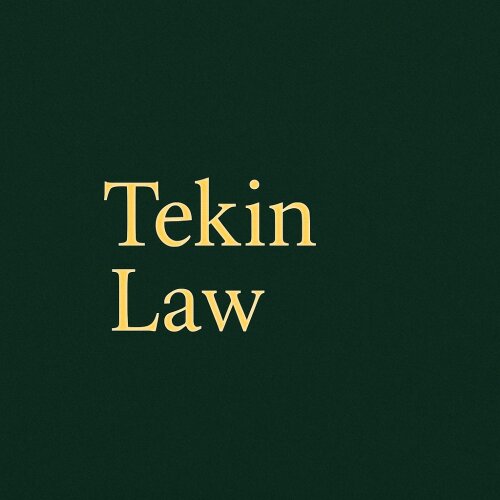Best Contract Lawyers in Istanbul
Share your needs with us, get contacted by law firms.
Free. Takes 2 min.
List of the best lawyers in Istanbul, Turkey
Legal guides written by Tekin Law Firm:
- Arbitration in Turkey
Turkey Contract Legal Articles
Browse our 1 legal article about Contract in Turkey written by expert lawyers.
- How to Protect Your Intellectual Property in Turkey
- First-to-File Supremacy: Turkey operates on a first-to-file system, meaning the first entity to apply for a trademark or patent generally secures the rights, regardless of prior use by others. Mandatory Local Filing: While Turkey is a member of the Madrid Protocol, direct filing with the Turkish Patent and Trademark Office... Read more →
About Contract Law in Istanbul, Turkey
Contract law in Istanbul, like the rest of Turkey, is governed by a combination of the Turkish Code of Obligations, the Turkish Commercial Code, and principles derived from international treaties that Turkey is part of. Contracts in Turkey are used to formalize agreements across various sectors including business, real estate, employment, and personal agreements. The legal system ensures that contracts are honored and disputes are resolved fairly, which provides security and predictability for individuals and businesses alike.
Why You May Need a Lawyer
There are several common scenarios in which individuals and businesses in Istanbul may require legal assistance with contracts. This includes drafting new contracts to ensure compliance with Turkish law, reviewing existing contracts to detect potential issues, negotiating terms to avoid future disputes, resolving disputes that arise from contract breaches, and handling cross-border transactions that require understanding of both Turkish and international laws.
Local Laws Overview
Key aspects of Turkish contract law relevant in Istanbul include:
- Form Requirements: Certain contracts, such as real estate agreements or employment contracts, require a written form.
- Good Faith Principle: The Turkish legal system emphasizes fairness and good faith, requiring parties to honor their obligations honestly and fairly.
- Language of Contracts: While contracts can be drafted in any language, it's advisable to have a Turkish version in case of legal disputes.
- Mandatory Provisions: Some contracts, particularly those related to employment and consumer rights, have mandated provisions to protect parties' interests.
- Dispute Resolution: Parties often include arbitration clauses for alternative dispute resolution, which is a popular option in Turkey for resolving business disputes.
Frequently Asked Questions
What are the basic requirements for a valid contract in Turkey?
A valid contract in Turkey requires mutual consent, a lawful cause, a definite subject, and competence of the parties involved. The contract should not violate public policy or principles of good morals.
Can verbal agreements be considered valid contracts in Turkey?
Yes, verbal agreements can be valid; however, proving their existence and terms in case of a dispute can be challenging. Written contracts are highly recommended.
Is it necessary to notarize contracts in Turkey?
Notarization is not mandatory for all contracts, but certain agreements like real estate transactions may require notarization for legal validity or enforceability.
How are international contracts treated under Turkish law?
International contracts may be governed by international treaties and conventions Turkey is a part of, such as the United Nations Convention on Contracts for the International Sale of Goods (CISG), depending on the parties' agreement.
What happens when a contract is breached?
In the event of a breach, the non-breaching party may seek remedies such as compensation for damages, specific performance, or contract termination, depending on the case specifics.
Can foreign judgments be enforced in Turkey regarding contract disputes?
Yes, foreign judgments can be enforced in Turkey provided they meet certain criteria and go through the exequatur process in Turkish courts.
Are penalty clauses in contracts enforceable in Turkey?
Penalty clauses are generally enforceable, provided they are deemed reasonable and not punitive in nature by Turkish courts.
How long do I have to bring a lawsuit for breach of contract?
The statute of limitations for commercial contracts is generally five years, but this can vary based on the nature of the contract and specific clauses agreed upon by the parties.
What are some common contract clauses I should be aware of?
Common clauses include force majeure, confidentiality, non-compete, indemnity, and dispute resolution clauses. Each should be carefully drafted to reflect the parties' intentions and local law.
Can I include a choice of law clause in my contract?
Parties to a contract are generally free to choose the governing law for their agreement, but this choice must have a connection to the contract's substance or one of the parties involved.
Additional Resources
For more information and assistance, the following resources may prove helpful:
- Turkey Bar Association: Offers guidance on finding qualified lawyers in Istanbul.
- Istanbul Chamber of Commerce: Can provide insights and resources for business contracts.
- Ministry of Justice of Turkey: Provides detailed information about legal procedures and rights.
- Consulates and Embassies: May assist expatriates with legal proceedings and resources.
Next Steps
If you need legal assistance with contracts in Istanbul, your first step should be to consult with a qualified Turkish lawyer specializing in contract law. Ensure your legal representation has experience in both local and international contracts if applicable. Prepare all relevant documents and outline your needs and expectations clearly when meeting with your lawyer. It is also advisable to research and compare different legal advisors to find the best fit for your particular situation.
Lawzana helps you find the best lawyers and law firms in Istanbul through a curated and pre-screened list of qualified legal professionals. Our platform offers rankings and detailed profiles of attorneys and law firms, allowing you to compare based on practice areas, including Contract, experience, and client feedback.
Each profile includes a description of the firm's areas of practice, client reviews, team members and partners, year of establishment, spoken languages, office locations, contact information, social media presence, and any published articles or resources. Most firms on our platform speak English and are experienced in both local and international legal matters.
Get a quote from top-rated law firms in Istanbul, Turkey — quickly, securely, and without unnecessary hassle.
Disclaimer:
The information provided on this page is for general informational purposes only and does not constitute legal advice. While we strive to ensure the accuracy and relevance of the content, legal information may change over time, and interpretations of the law can vary. You should always consult with a qualified legal professional for advice specific to your situation.
We disclaim all liability for actions taken or not taken based on the content of this page. If you believe any information is incorrect or outdated, please contact us, and we will review and update it where appropriate.

















